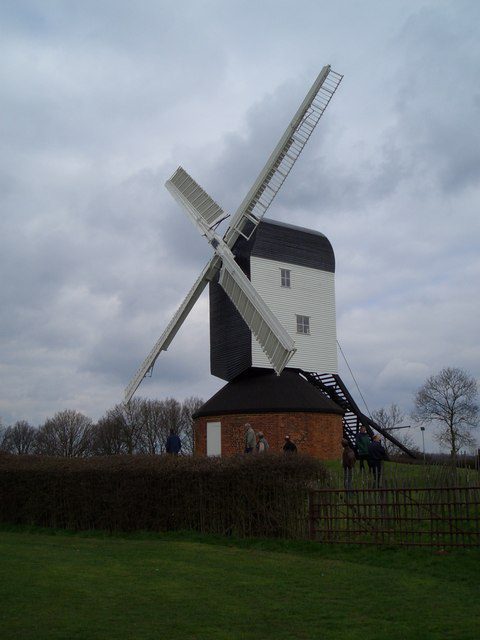Alcohol-free beer has gained popularity as a refreshing alternative for those seeking the taste and experience of beer without the effects of alcohol. Whether you’re looking for a halal beverage, considering the health implications, or wondering about its impact on your liver, we’ve got you covered. In this blog post, we’ll delve into common questions surrounding alcohol-free beer and provide detailed answers to help you make informed choices. So, let’s explore the world of alcohol-free beer and separate fact from fiction.
Are alcohol-free beers halal?
The halal status of alcohol-free beer depends on the specific ingredients and manufacturing process involved. While alcohol-free beers are designed to contain little to no alcohol, some manufacturers may still use trace amounts of alcohol during production. Additionally, certain brands may use non-halal ingredients, such as non-halal gelatin or flavourings derived from non-halal sources. To determine if a specific alcohol-free beer is halal, it is best to check with the manufacturer or consult a reliable halal certification authority. They can provide accurate information regarding the sourcing and production methods used, as well as confirm if the alcohol content meets the halal standards defined by Islamic dietary laws.
Are alcohol-free beers healthy?
Alcohol-free beers can be considered a healthier alternative to regular beers, particularly for individuals who want to avoid the negative effects of alcohol consumption. These beers typically contain little to no alcohol, reducing the risks associated with alcohol consumption, such as impaired judgement, liver damage, and addiction. However, it’s important to note that alcohol-free beers may still contain calories, carbohydrates, and other ingredients that can impact health. It’s advisable to check the nutritional information on the label to be aware of the specific content. Some alcohol-free beers may also contain artificial sweeteners, which could be a concern for those sensitive to them. When consumed in moderation and as part of a balanced diet, alcohol-free beers can be enjoyed as a refreshing beverage without the negative consequences of alcohol.
Are alcohol-free beers bad for you?
Alcohol-free beers are generally considered safe for consumption. However, it’s important to remember that they are still beverages and can contribute to your overall calorie and carbohydrate intake. Some alcohol-free beers may contain higher sugar or carbohydrate content to compensate for the lack of alcohol, which could be a concern for individuals with diabetes or those following a low-carbohydrate diet. Additionally, certain individuals may have specific dietary restrictions or health conditions that could be affected by certain ingredients present in alcohol-free beers, such as gluten or allergens. It’s recommended to read the label and consider personal health factors before consuming alcohol-free beers. Moderation and individual considerations are key to enjoying alcohol-free beers responsibly.
Are alcohol-free beers bad for you?
Alcohol-free beers are generally considered safe for consumption. However, it’s important to remember that they are still beverages and can contribute to your overall calorie and carbohydrate intake. Some alcohol-free beers may contain higher sugar or carbohydrate content to compensate for the lack of alcohol, which could be a concern for individuals with diabetes or those following a low-carbohydrate diet. Additionally, certain individuals may have specific dietary restrictions or health conditions that could be affected by certain ingredients present in alcohol-free beers, such as gluten or allergens. It’s recommended to read the label and consider personal health factors before consuming alcohol-free beers. Moderation and individual considerations are key to enjoying alcohol-free beers responsibly.
Is alcohol-free beer fattening?
When compared to regular beer, alcohol-free beers generally have fewer calories. However, they can still contribute to your calorie intake. The exact number of calories in alcohol-free beers can vary depending on the brand and specific product. Some alcohol-free beers may contain higher levels of carbohydrates or added sugars to enhance flavour, which can increase their calorie content. It’s essential to check the nutritional information on the label and consider alcohol-free beers as part of your overall balanced diet. While alcohol-free beers can be a suitable choice for individuals looking to reduce their alcohol consumption or calorie intake, excessive consumption can still lead to weight gain, especially if not accounted for in your overall dietary plan.
Is alcohol-free beer good for you?
Alcohol-free beer can be a good alternative for individuals who enjoy the taste and social aspects of beer but want to avoid the negative effects of alcohol. It provides an option for those looking to reduce or eliminate their alcohol consumption. Alcohol-free beers often contain fewer calories and have a lower alcohol content, reducing the risks associated with alcohol consumption, such as impaired judgement, liver damage, and addiction. Additionally, some alcohol-free beers may contain beneficial nutrients derived from grains, such as B vitamins and antioxidants. However, the health benefits of alcohol-free beer depend on various factors, including an individual’s overall diet, lifestyle, and health conditions. It’s important to consume alcohol-free beer in moderation as part of a balanced lifestyle that includes a nutritious diet, regular exercise, and overall healthy habits.
Is alcohol-free beer bad for your liver?
Alcohol-free beers, by definition, contain little to no alcohol. Since alcohol is the primary substance that can cause harm to the liver, alcohol-free beers are generally considered safe for the liver when consumed in moderation. However, it’s important to note that alcohol-free beers can still contain small traces of alcohol (less than 0.5% ABV in most jurisdictions). These trace amounts are unlikely to cause harm to the liver unless consumed in excessive quantities. Additionally, individuals with pre-existing liver conditions should consult with a healthcare professional before consuming any alcoholic or alcohol-free beverages to ensure they are suitable for their specific health situation.
Is alcohol-free beer safe for pregnancy?
It is generally recommended to avoid alcohol during pregnancy, including alcohol-free beer. While alcohol-free beers have little to no alcohol content, they may still contain ingredients that could pose risks to the developing foetus. Some alcohol-free beers may contain non-alcoholic fermented products or residual alcohol from the brewing process. The effects of these substances on foetal development are not well understood, and it’s best to err on the side of caution during pregnancy. The safest option is to abstain from alcohol, including alcohol-free beer, and consult with a healthcare professional for specific guidance on alcohol consumption during pregnancy.
Does alcohol-free beer have fewer calories?
Alcohol-free beers typically have fewer calories compared to their alcoholic counterparts. However, the exact calorie content may vary depending on the brand and specific product. Alcohol-free beers are made by either removing or limiting the alcohol content, which reduces the overall calorie content. On average, alcohol-free beers contain around 50-100 calories per 12-ounce serving, whereas regular beers can range from 100 to 200 or more calories per serving. It’s important to note that some alcohol-free beers may have higher carbohydrate or sugar content to enhance flavour, which can contribute to the overall calorie content. To determine the exact calorie content of a particular alcohol-free beer, it’s best to refer to the nutritional information provided on the label.
Does alcohol-free beer taste the same?
The taste of alcohol-free beer can vary depending on the brand and individual preferences. While efforts are made to replicate the taste of regular beer, there may be slight differences in flavour due to the absence of alcohol. Alcohol contributes to the distinct taste and mouthfeel of beer, and its absence can impact the overall sensory experience. However, many breweries have developed techniques to create alcohol-free beers that closely resemble the taste of their alcoholic counterparts. Factors such as the selection of malt, hops, and yeast strains, as well as the brewing process, can influence the flavour profile of alcohol-free beer. It’s recommended to try different brands and styles to find one that aligns with your taste preferences.
Does alcohol-free beer dehydrate you?
Alcohol-free beer generally does not cause dehydration in the same way that alcoholic beverages can. Alcohol is a diuretic, meaning it increases urine production and can lead to dehydration when consumed in large quantities. However, alcohol-free beers typically do not have the same diuretic effect because they contain little to no alcohol. Therefore, they can be hydrating like other non-alcoholic beverages. In fact, alcohol-free beers often have a similar water content to regular beer, contributing to overall hydration. Nonetheless, it’s important to maintain a balanced fluid intake and consider individual hydration needs in conjunction with alcohol-free beer consumption.
Is it okay to drink Alcohol-free beers every day?
Consuming alcohol-free beer every day is generally considered safe for most individuals. Alcohol-free beers typically contain less than 0.5% alcohol by volume (ABV), which is significantly lower than regular beers. This low alcohol content makes them a suitable option for those who want to limit or avoid alcohol consumption altogether.
Alcohol-free beers can be a refreshing and hydrating alternative to alcoholic beverages, as they are primarily composed of water and other non-alcoholic ingredients. They also tend to have lower calorie content compared to regular beers, but it’s important to be mindful of the overall calorie intake if you’re watching your weight.
When it comes to the nutritional value of alcohol-free beers, they may provide some B vitamins and minerals, but they should not be relied upon as a significant source of nutrients. The nutritional content can vary among different brands, so it’s always a good idea to check the labels for specific information.
Can you be over the limit from 0.5% alcohol-free beers?
Referring to legal blood alcohol concentration (BAC) limits for driving or operating machinery, it’s crucial to understand that even though alcohol-free beers have a low alcohol content, consuming a large quantity could potentially affect your BAC. The exact amount would depend on various factors, including your body weight, metabolism, and how quickly you consume the beverages.
However, getting drunk or becoming over the limit from <0.5% beers would take a dedicated and concerted effort to drink many beers in a short timeframe. Doing so accidentally would be very improbable.
Alcohol-free beer offers a viable option for those who wish to enjoy the taste and experience of beer without the effects of alcohol. While it is important to consider individual health circumstances and consume alcohol-free beer in moderation, it can be a suitable choice for individuals looking to reduce their alcohol consumption, follow dietary restrictions, or enjoy a refreshing beverage without the negative consequences of alcohol. By understanding the nuances and addressing common questions surrounding alcohol-free beer, you can make informed decisions about incorporating it into your lifestyle. Remember, moderation and balance are key to enjoying alcohol-free beer responsibly.






